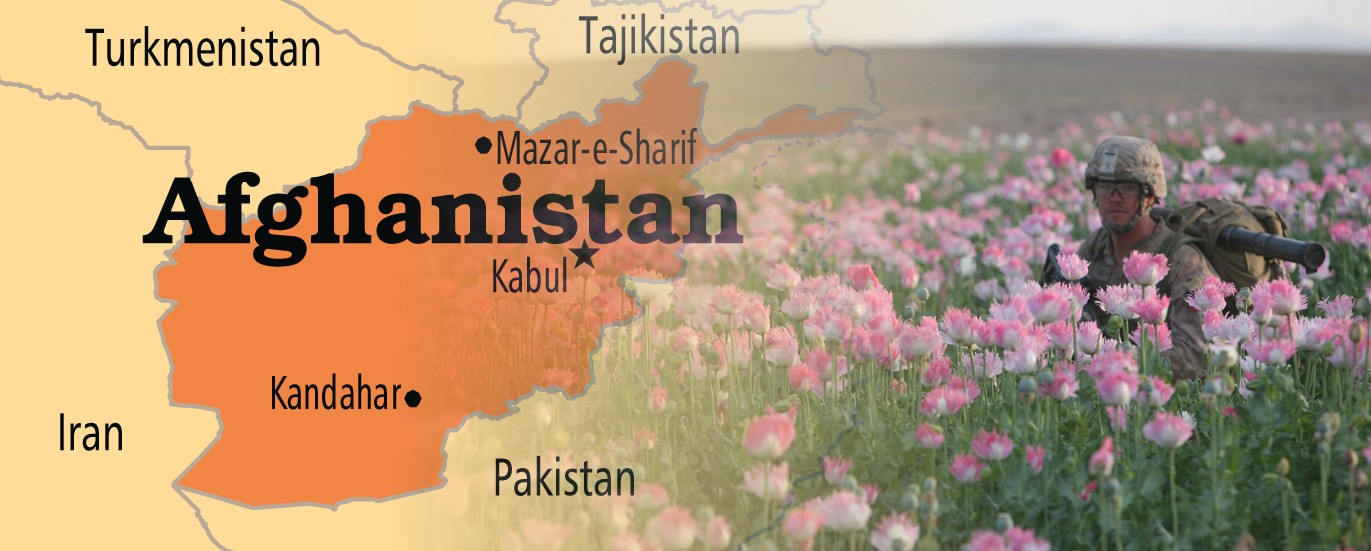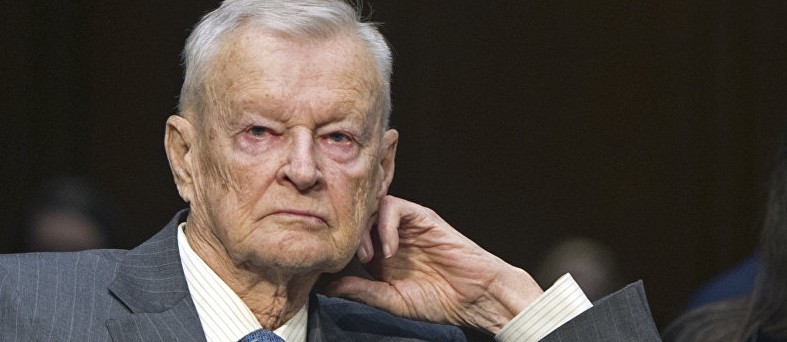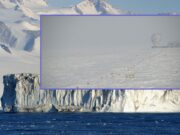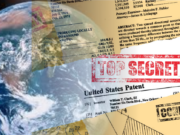
By James O’Neill*
“Without an understanding of the past, we will never understand the present. And without understanding the present, we will never understand the past.” Friedrich Nietzsche
Policies based on myths and lies, as we have seen in recent years, can have disastrous consequences, leading to the invasion, occupation and destruction of whole societies. Australia has been involved in a number of these foreign policy disasters in recent decades, as for example in Vietnam, Afghanistan, Iraq and Syria. None represented a vital national interest for Australia, notwithstanding the political rhetoric of the time. All represented essentially a willingness to act in the interests of a third party.
There is a third category of misinformation apart from myths and legends that is perpetrated and that is a category that I shall refer to as official lies. These are deliberate falsehoods stated to justify a particular policy decision; for example, Iraq’s ‘weapons of mass destruction’; Gadhafi ‘killing his own people’; Assad’s ‘chemical attacks on innocent citizens’; Iran’s ‘nuclear weapons program;’ ‘Russian aggression’ and so on.
One can expect politicians to go on repeating them because to do otherwise would amount to an admission of stupidity or knavery or worse.
What is dangerous to the survival of the remnants of our democracy however is that these official lies are repeated ad nauseum by journalists and commentators long after the original lies have been exposed for what they were, and often a more convincing explanation for what happened has emerged.
A further category of willful deception that is apparent is the deliberate avoidance of established facts, the existence of which is often the key to understanding why a particular policy was embarked upon. These points are all illustrated by reference to the case of Afghanistan, which incorporates all of the above elements.
The latest western involvement in that country can be marked from the 1970s when US President Jimmy Carter was persuaded by the late Zbigniew Brzezinski to mount a clandestine program code-named Operation Cyclone to train Mujaheddin in camps in Pakistan. (Steve Coll Ghost Wars. (2004) The policy goal was to undermine the relatively secular socialist government then ruling Afghanistan whose only real friend was the USSR.
 Zbigniew Brzezinski
Zbigniew Brzezinski
The Mujaheddin, which these days would be called terrorists, infiltrated not only Afghanistan but also the Muslim republics of the USSR and China’s Xinjiang province with a similarly strong Muslim presence.
This was the origin of al Qaeda, which is simply Arabic for “the list”, that is, a list of fighters who could be relied upon to pursue the US’s geopolitical goals in the regions they were infiltrated. One of its most prominent members was Osama bin Laden, a member of a prominent Saudi family with close personal and business ties to the Bush family. (Ruppert’s Crossing the Rubicon 2004) On his frequent trips to the US, bin Laden was known by the pseudonym Colonel Tim Osman.
After the secular Afghan government was overthrown and eventually replaced by the Taliban government in the 1990s, American interest was focused on building a pipeline from the huge Caspian Basin reserves (located in the now former Soviet republics) to an Indian Ocean port. (Scott, Drugs, Oil and War 2003) For geographical and political reasons the only feasible route for that pipeline was through Afghanistan.
Negotiations on the rights to the pipeline continued through 2000 and 2001. The negotiations collapsed in July 2001 when the Taliban government refused American offers and awarded the contract to an Argentinian company, Bridas. It was then, in July 2001, that the Bush administration made the decision to invade Afghanistan. (L. Chin Players on a rigged grand chessboard. www.onlineopinion.org 10 March 2002.)
They needed an excuse to do so, and the events of 11 September 2001 (“9/11”) provided the professed justification. That highly relevant history preceding the invasion of Afghanistan is completely ignored in mainstream accounts of the conflict. Rather, supporters of the invasion and occupation point to UN Security Council resolutions as providing the legal basis for the October 2001 invasion and occupation to this day. In particular, they rely on Resolutions 1368 and 1373 of 2001.
Resolution 1368 of 12 September 2001 (the day after “9/11”) is a general condemnation of the attacks in New York, Washington DC and Pennsylvania and expresses the Security Council’s readiness to take all necessary steps in accordance with its responsibilities under the UN Charter. A day after the attacks the facts could not possibly have been known, let alone apportion responsibility sufficient to justify military intervention.
Allegations from the Americans, who had omitted to tell the Security Council that they had decided in July to invade Afghanistan “before the snows of October,” (Chin op cit) did not constitute an evidential basis. There had been no claims or admissions of culpability, least of all from the Afghan government itself.
Resolution 1373 of 28 September 2001 was a resolution immediately preceding the American attacks. That resolution was a series of statements dealing with the responsibility of member States to take steps such as freezing assets of terrorist groups, improving cooperation and so on. It has two significant elements. First, it does not mention Afghanistan at all. Secondly, it reinforces that it (the Security Council) is acting under Chapter VII of the UN Charter.
That chapter deals with the power of the Security Council to authorise specific military action, and Article 51 deals with the right to individual or collective self-defence. The resolution contains no specific authorization for the invasion of Afghanistan.
It is settled international law that Article 51 may only be invoked in the event of an attack by one State upon another State. (www.opil.ouplaw.com) Afghanistan manifestly has not attacked anyone. The worst that could be said is that it sheltered the alleged organizer of 9/11, Osama bin Laden. That is highly contentious. Bin Laden always denied involvement. The Taliban government said that they were willing to hand bin Laden over to an independent judicial tribunal if the US could produce evidence of bin Laden’s involvement. That was never done. Just as the US had omitted to tell the Security Council about their pre-existing decision to invade Afghanistan, they also omitted to make any mention of bin Laden’s role in the American organized Operation Cyclone.
Prior to the invasion, the Taliban government had virtually eliminated opium production in the areas under its control (they never had complete control of the country). After they were forcibly ejected by the US led invasion and occupation, a number of significant events occurred.
First, opium production again boomed to the point where, according to the UN Drug Agency, Afghanistan now accounts for 93% of the world’s heroin production. (www.unodc.org World Drug Report 2016).
Secondly, the evidence is now overwhelming that coalition troops now protect the poppy fields. The evidence also shows that US planes are used to ferry the opium/heroin for distribution in Central Asia (the US Manus air base in Uzbekistan) and Europe (via Camp Bond Steel in Kosovo) among others. Afghan heroin is a major source of off the books financing of CIA clandestine operations, as was previously the case in Indo-China, Thailand and Myanmar (McCoy The Politics of Heroin, rev ed. 2003; ) and Columbian cocaine (Hopsicker Barry and the Boys 2002; Webb Dark Alliance 2014).
The third major event was the immediate cancellation of Bridas’ gas pipeline contract and its awarding to US companies with links to prominent members of the Bush administration. (Ruppert op cit.) Bridas successfully sued the US Government and was awarded $500 million in damages, a fact unreported in most of the western mainstream media.
If one overlays a map of US bases in Afghanistan it is immediately obvious that they are located to provide maximum protection to both the pipeline route and the major poppy fields.
Now, nearly sixteen years after the invasion and occupation, the situation for ordinary Afghans is no better than it was at the time of the invasion. The Taliban now control more of the countryside than at any time since the invasion in 2001. Opium production as noted is at record levels. Corruption is endemic. The Afghan military, whom the Australians are allegedly “training” are notorious for their “ghost troops”, i.e. inflated numbers, the salaries for whom go straight into the pockets of the commanders and local warlords.
Civilians and soldiers are still being killed on a regular basis. More than 33,000 Afghan civilians have been killed, more than 1660 in the first six months of 2017 alone. Total civilian casualties, killed and wounded, are more than 225,000. 2.6 million have been forced abroad as refugees, and more than 1 million have been internally displaced (Alon Ben-Meir, www.consortiumnews.com. 23 July 2017). There are regular reports of alleged war crimes by occupying soldiers, including recent, as yet unproven, allegations against Australian troops.
Most of the above points are never mentioned in the mainstream media. Instead, there are constant claims that progress is being made. Evidence in support of that claim is virtually non-existent and is impossible to square with the casualty and refugee figures, or the need for periodic troop “surges”, including a request by the US in May 2017 for more Australian troops. Turnbull has said that favourable consideration is being given to that request. Of the original 22 nations that participated in the invasion and occupation, that number has steadily dwindled with the US, UK and Australia the only nations with a significant military presence.
The Afghan government has now asked the Russians and the Chinese for assistance. (Khalil www.crssblog.com 25 April 2017) UN Security Council resolution 1378 of 14 November 2001 reaffirmed
“its strong commitment to the sovereignty, independence, territorial integrity and national unity of Afghanistan”
If those words had any meaning the Afghan government should be able to ask for and receive Russian and Chinese assistance. Six party talks were held in Moscow in February 2017 and attended by Afghanistan, China, India, Iran, Pakistan and Russia. The Americans refused to support that initiative. (Baloch www.geopolitica.ru 14 April 2017)
Australia wasn’t invited. The reason for the American attitude to genuine attempts to resolve the Afghan problem that is that the invasion and occupation in 2001 and since had nothing to do with 9/11, or, to quote UN Security Council resolution 1383 of 6 December 2001 “promoting national reconciliation, stability and respect for human rights.”
The invasion and occupation was and always has been about control of the gas pipeline, control of opium production, access to the rare earth minerals essential to modern technology, and having military bases as part of the encirclement and “containment” of Russia and China.
Australians are generally unaware of these geopolitical realities because its political leaders prefer a combination of myth, misinformation and obvious lies, aided and abetted by a mainstream media that is failing in its fundamental duty to its readers. As long as that remains the case, Australia will continue to become involved in other people’s wars to our own ultimate detriment.
*Barrister at Law and geopolitical analyst. He may be contacted at joneill@qldbar.asn.au
Photo of Brzezinski, Sputnik International






























As always Ned, awesome post. Wish itcould bve more widely diseminated.
Ed,
Slight çorrection needed,
Bur thankyou for the honour.
That’s a fabulous article, James.
Dee, please blow up the right side of the picture, the soldier in the poppy fields. Who’s soldier is it?
I recall a photo of Julia Gillard attending an Aussie soldier’s funeral and next to her stood an officer in dress uniform. His face was pixeled out. Did he request the pixelizaion, and if so why?
Never mind, Dee, here is a photo, from 3 years ago — With apologies for the occasional 4-letter words:
.
https://www.youtube.com/watch?v=qW2YWqVpT4E
Which is why President Rodrigo Duterte is such a champion for and so beloved by his people. One of his primary challenges is to confront the problem of 3-4 Million heroin addicts in the Philippines and save a whole generation by disrupting the supply chain.
More from Abby Martin:
• Empire Files: The Roots of the Philippines Trafficking Epidemic
• https://youtu.be/h2Rulneq_9A
A good overview by William Engdahl:
• PHILIPPINES: Washington is not Amused, Another CIA/ISIS Joint Destabilization Campaign Underway
• http://21stcenturywire.com/2017/06/26/philippines-washington-is-not-amused-another-ciaisis-joint-destabilization-campaign-underway/
A typical interview:
• Maria Finsohina (of RT) interview with President Rodrigo Duterte
• https://youtu.be/rHjlCmdyesY
My God, Fish, that RT interview should set everybody straight.
Yes Mary, President Duterte is very well read (and experienced) on history and current geopolitics, and not to be underestimated. He reminds me of another great (free) world leader.
I find the best way to ‘understand’ / get insight into someone such as President Rodrigo Duterte is to actually listen to them speak first hand, not read the standard ‘Myths, Legends and Lies’ about them …
Just sharing another for your readers (it warms up after some general introductory Q&A – I recommend the ‘Thinking Minds’ channel, devoted to the Philippines – it also contains his State of the Nation Address from a day or two ago).
• Duterte Q&A, interview and speech
• https://youtu.be/jgqMdYbmb4w
We will try get James’s article widely seen. The new website is coming soon.
For the record, I’m linking a Gumshoe article that contains April Glaspie’s talk with Saddam, the one that led to the 1991 “Gulf war” in which Oz sent 2,000 troops as a member of Bush Senior’s “Coalition of the Willing”.
James, I don’t mean to confuse that war with the one you are talking about that began on October 8, 2001, a few weeks after Larry pulled Building 7 as an act of humanitarian aid.
[“and I said, “We’ve had such terrible loss of life, maybe the smartest thing to do is pull it.”]
https://gumshoenews.com/2017/04/18/false-flags-and-the-april-glaspie-transcript-of-1990/
Thank you James – great summary and wonderfully researched and articulated as always.
To illustrate just one falsehood: Gadhafi ‘killing his own people’
Note the numerous contextual clips of a certain Nobel “peace” prize winner interspersed throughout the following:
https://youtu.be/COdKmHkPoOo
Obama:
“Gaddafi clearly lost the confidence of his own people and the legitimacy to lead.
Gaddafi chose the path of brutal suppression. Innocent civilians were beaten, imprisoned and in some cases killed. Peaceful protests were forcefully put down. [Wait for it …] HOSPITALS WERE ATTACKED and patients disappeared. A campaign of intimidation and repression began.
For decades he has demonstrated a willingness to use brutal force through his SPONSORSHIP OF TERRORISM AGAINST THE AMERICAN PEOPLE [Perfect!] as well as others … and through the killings that he has carried out within his own borders.
Now here’s why this matters to us. Left unchecked, we have every reason to believe that Gaddafi would commit atrocities his people
GADDAFI DECLARED HE WOULD SHOW NO MERCY TO HIS OWN PEOPLE. He compared them to rats and threatened to go door to door to inflict punishment. In the past we had seen him hang civilians – in the streets – and kill over 1000 people in a single day.
Now we saw regime forces on the outskirts of the city [Benghazi no less]. We knew that if we waited one more day, Benghazi, a city nearly the size of Charlotte, could suffer a massacre that would have reverberated across the region and stained the conscience of the world. It was NOT IN OUR NATIONAL INTEREST [beautifully scripted … and so on …]”
[…] “Myths, Legends and Lies: Australia’s Policy in Afghanistan” … “The invasion and occupation was and always has been about control of the gas pipeline, control of opium production, access to the rare earth minerals essential to modern technology, and having military bases as part of the encirclement and “containment” of Russia and China.” https://gumshoenews.com/2017/07/26/myths-legends-and-lies-australias-policy-in-afghanistan/ […]
As “the invasion, occupation and destruction of whole societies” was preceded by a media-driven ANZAC revival that has never been properly explained, what more could you expect ?
This is about as close as anyone dares venture:
http://www.theage.com.au/articles/2004/04/23/1082616327419.html
The “Australia-faced-Japanese-attack-without-the-protection-of-Britain” remark is a dead give-away.
Thank you for your work James – what else can one say?